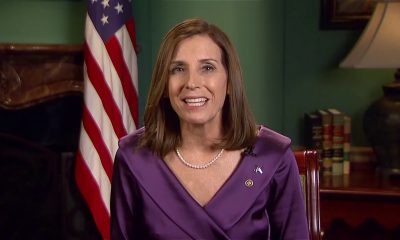World
US calls for VW documents over emissions software

Washington: US lawmakers requested documents from Volkswagen and the US Environmental Protection Agency (EPA) regarding the aurtomaker’s illegal software used to mask emissions for certain models of its diesel cars.
In a letter to Michael Horn, CEO of Volkswagen Group of America, the bipartisan leadership of the House Energy and Commerce Committee on Tuesday asked VW to turn over all documents, including those “related to the development, approval, testing and use of the software” installed in its nearly 500,000 diesel cars in the US, a news agency reported.
In a separate letter to the head of the EPA, the committee leaders asked for a detailed timeline of events and activity related to the violations, including how and when the violations were discovered.
“It seems Volkswagen had a dirty little secret, and it is not just consumers who are feeling betrayed,” said a joint statement by the committee’s chairman Fred Upton and the committee’s oversight and investigations panel chairman Tim Murphy.
“There are many unanswered questions and we will get the facts and the answers that the American people deserve.”
The committee wants the information and documents by October 13. The requests came on the heels of last week’s announcement that the committee will soon hold a hearing on the Volkswagen scandal.
The software in question, which the company acknowledged deploying in some 11 million vehicles worldwide, allowed Volkswagen’s diesel cars to detect when they were undergoing emissions testing and turn full emissions controls on only during the test.
This resulted in vehicles meet emissions standards in the laboratory or testing station, but during normal operation, emit nitrogen oxides at up to 40 times the standard.
World
Lockdowns in China Force Urban Communities to Defy Censorship and Vent Frustration Online

Shanghai’s rich middle class is leading a wave of online dissent over the strict and prolonged lockdowns imposed in various parts of the country. Chinese internet censorship is struggling as patience is wearing thin in many urban centers, coming up with creative forms of online protests.
Social Media Posts Revealing Lockdown Tension in Shanghai
Drawn-out lockdowns are nothing new in China as authorities insist with the nation’s zero-Covid policy since the start of the pandemic. Currently over This time around, however, metropolitan areas like Shanghai are increasingly difficult to keep quiet, given that its more than 25 million residents have seen weeks of total isolation along with food shortages and many other service interruptions.
Dozens of towns and reportedly over 300 million Chinese citizens have been affected by lockdowns of different severity. As expected, urban netizens have been most outspoken over their difficulties by finding creative ways to get around state censorship and bans placed on topics, news comments and spontaneous campaigns.
Shanghai residents have been using mobile proxies and hijacking seemingly unrelated hashtags to talk about healthcare issues, delivery failures and the overall severity of their situation. The “positive energy” that the Chinese government wants to transmit during the recent prolonged series of lockdowns does not come naturally to those counting food supplies and online censors are working hard to filter words, trending topics and undesired social media sharing.
WeChat groups and message threads are under constant monitoring. Posts questioning the zero-Covid approach have been quickly deleted, including by leading Chinese health experts like Dr. Zhong Nanshan. Video footage is soon censored and protests and investigations are quickly made to disappear.
Where this has not worked, officials have exposed banners with warnings and outright threats like “watch your own mouth or face punishment”, while drones have been patrolling the city skies. Yet, if anything, this has led to further tensions and unspoken confrontation with Shanghai’s educated and affluent middle class.
Creative Online Solutions Harnessing Civic Energy
Announcements by Chinese social media that they would be publishing the IP addresses of users who “spread rumors” have not helped either. Tech industry research has shown that much of Asia’s tech-savvy population has a habit of using mobile proxies and other privacy tools, quickly finding workarounds to browse the internet freely and talk to the world about the hottest topics.
The sheer volume of forbidden posts is already a challenge for the very censorship system, experts explain. Unable to track all trending hashtags, state workers overlook topics that speak about the US, Ukraine or other popular news. Linking human rights elsewhere to their situation, Chinese online dissidents establish their informal channels and “hijack” the conversation to share personal or publicly relevant information about the Covid suppression in their town.
Sarcastic and satirical posts still dominate. Others hope to evade the censors by replacing words from famous poems or the national anthem. One thing is certain – social media, when harnessed with the right creativity, has proven its ability to mount pressure on the government in even some of the most strictly controlled tech environments like China.























